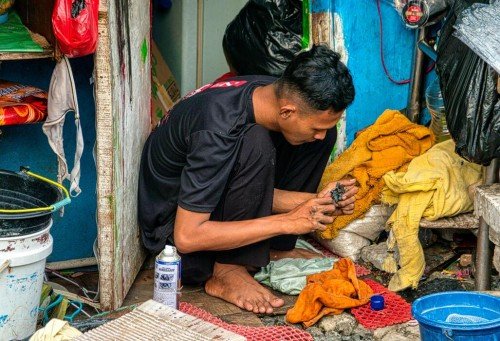
How Innovation Is Empowering Poor Countries to Grow
- August 21, 2025
- Beyond Aid
For decades, the common narrative about poor countries has centered on aid, donations, relief programs, and humanitarian assistance. While aid has saved lives and helped during emergencies, it has often failed to create lasting economic independence. Today, however, the focus is shifting. Innovation, education, and sustainable development are proving to be far more powerful tools in empowering nations to stand on their own. From digital banking to renewable energy, a wave of creative solutions is reshaping the future of the world’s most vulnerable communities.
The Limits of Traditional Aid
Traditional aid, while essential in crises, often creates dependency. Countries reliant on constant financial inflows struggle to build internal structures for growth. Critics argue that aid can unintentionally weaken local industries, as free goods or services displace local businesses. For example, food aid may alleviate hunger in the short term but hurt local farmers trying to sell their crops. The new challenge for global development is to move beyond short-term fixes toward long-term empowerment.
Technology as a Catalyst for Change
Innovation is at the heart of this new approach. In Africa, for instance, mobile banking platforms like M-Pesa have transformed access to finance. People who never had a bank account can now save, transfer, and borrow money using just a mobile phone. This has opened the door to entrepreneurship, allowing small businesses to thrive in communities once excluded from formal financial systems.
Similarly, renewable energy projects are giving villages electricity for the first time. Solar microgrids not only light homes but also power schools, medical centers, and local businesses. With energy, communities can leapfrog into the modern economy without relying on costly infrastructure projects.
The Foundation of Independence
No long-term development is possible without education. Literacy, digital skills, and vocational training are transforming young populations into powerful engines of growth. Innovative programs are leveraging technology to overcome the lack of physical infrastructure. In some rural areas, digital classrooms powered by solar panels are providing access to world-class learning materials. Education is not just about knowledge, it is about empowerment. Every child who learns to read, code, or solve problems contributes to breaking the cycle of poverty.
Global Cooperation and Communication
As poor countries adopt new models for growth, collaboration across borders becomes crucial. Governments, NGOs, and private companies must work together to ensure resources are shared effectively. Communication plays a vital role in this process. A translation company can make the difference between a project that succeeds and one that fails, especially when stakeholders speak different languages. Accurate translation of contracts, training materials, or research papers ensures that innovation reaches every corner of the globe without being lost in translation.
Healthcare Innovation
Healthcare is another area where innovation is reshaping outcomes. Telemedicine, for example, brings doctors virtually into remote areas where hospitals are scarce. Mobile health apps are helping people track vaccinations, manage chronic illnesses, and receive basic care instructions. Combined with local health workers, these tools bridge the gap between advanced medical knowledge and on-the-ground realities. In this context, translation is again crucial. A trusted translation company ensures that medical instructions are not only accurate but culturally adapted to each community’s needs.
Microfinance and Entrepreneurship
One of the most transformative innovations has been microfinance. By offering small loans to individuals, especially women, microfinance programs empower people to start small businesses, selling goods, raising livestock, or providing services within their communities. These loans may seem tiny by global standards, but for many families they represent a chance to escape poverty permanently. Entrepreneurship, supported by training and access to new markets, is helping communities become self-sufficient and resilient.
Sustainable Agriculture
Agriculture remains the backbone of many developing nations. New techniques, such as drought-resistant crops, hydroponics, and smart irrigation, are making farming more sustainable and productive. When farmers can increase yields, they can feed their families and sell surplus crops, driving local economies. Beyond technology, sharing knowledge across borders helps farmers adopt global best practices that fit local conditions.
Building Resilient Communities
Ultimately, innovation fosters resilience. Communities that can generate their own energy, grow their own food sustainably, and access financial services are less vulnerable to external shocks. Whether it’s climate change, economic downturns, or health crises, resilience gives poor countries the tools to adapt and recover quickly.
Conclusion
The story of development is evolving. Poor countries are no longer seen as passive recipients of aid but as active participants in building their futures. Innovation, whether in technology, education, healthcare, or agriculture is giving them the tools to thrive. Aid still has a role to play, particularly in emergencies, but the long-term solution lies in empowering communities with sustainable opportunities. As collaboration deepens across borders, accurate communication and trust between partners become even more essential. From policy documents to training guides, the role of a professional translation company ensures that ideas flow without barriers. The future of development is not just about what wealthier nations can give, but about what all nations can build together through creativity, knowledge, and cooperation.